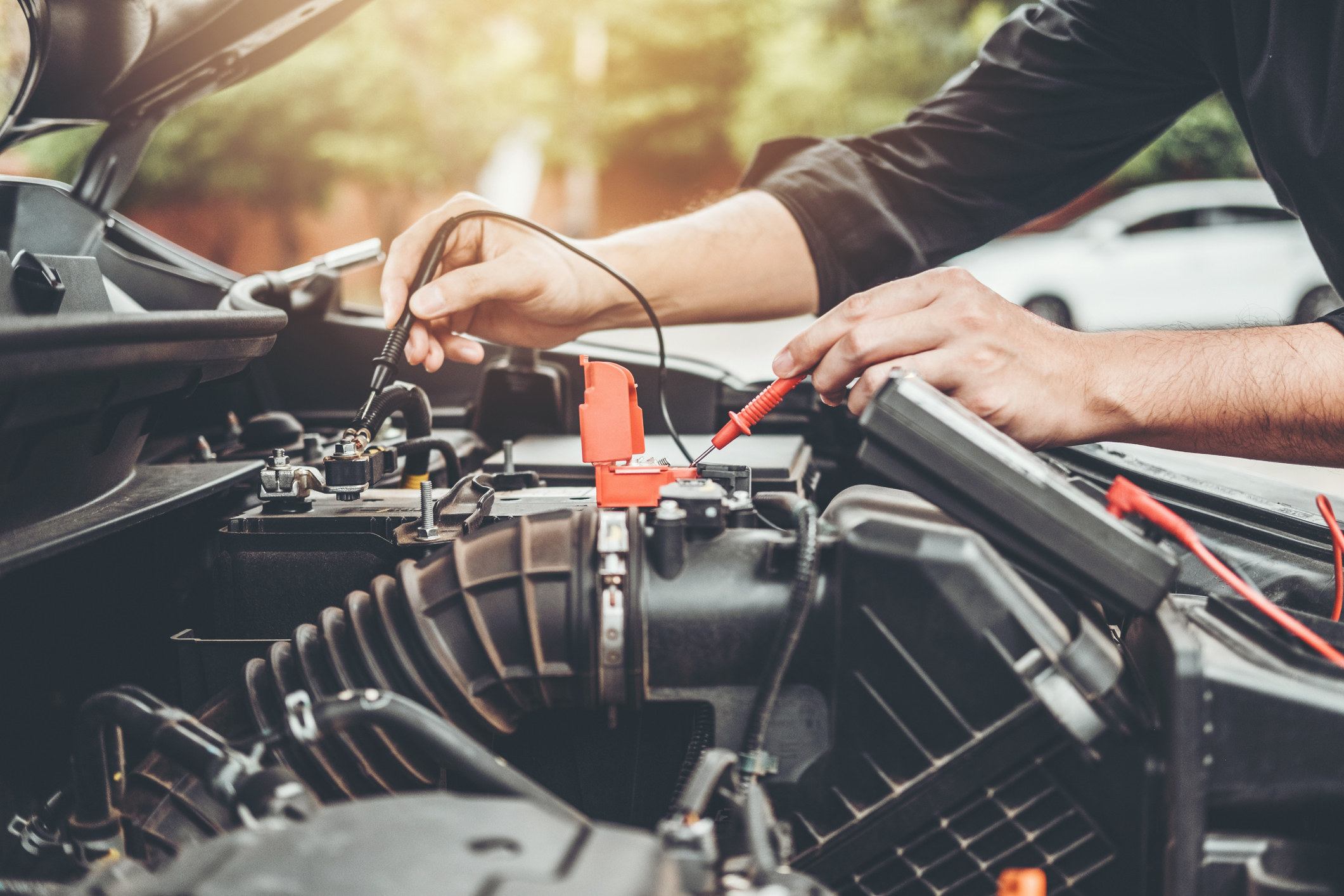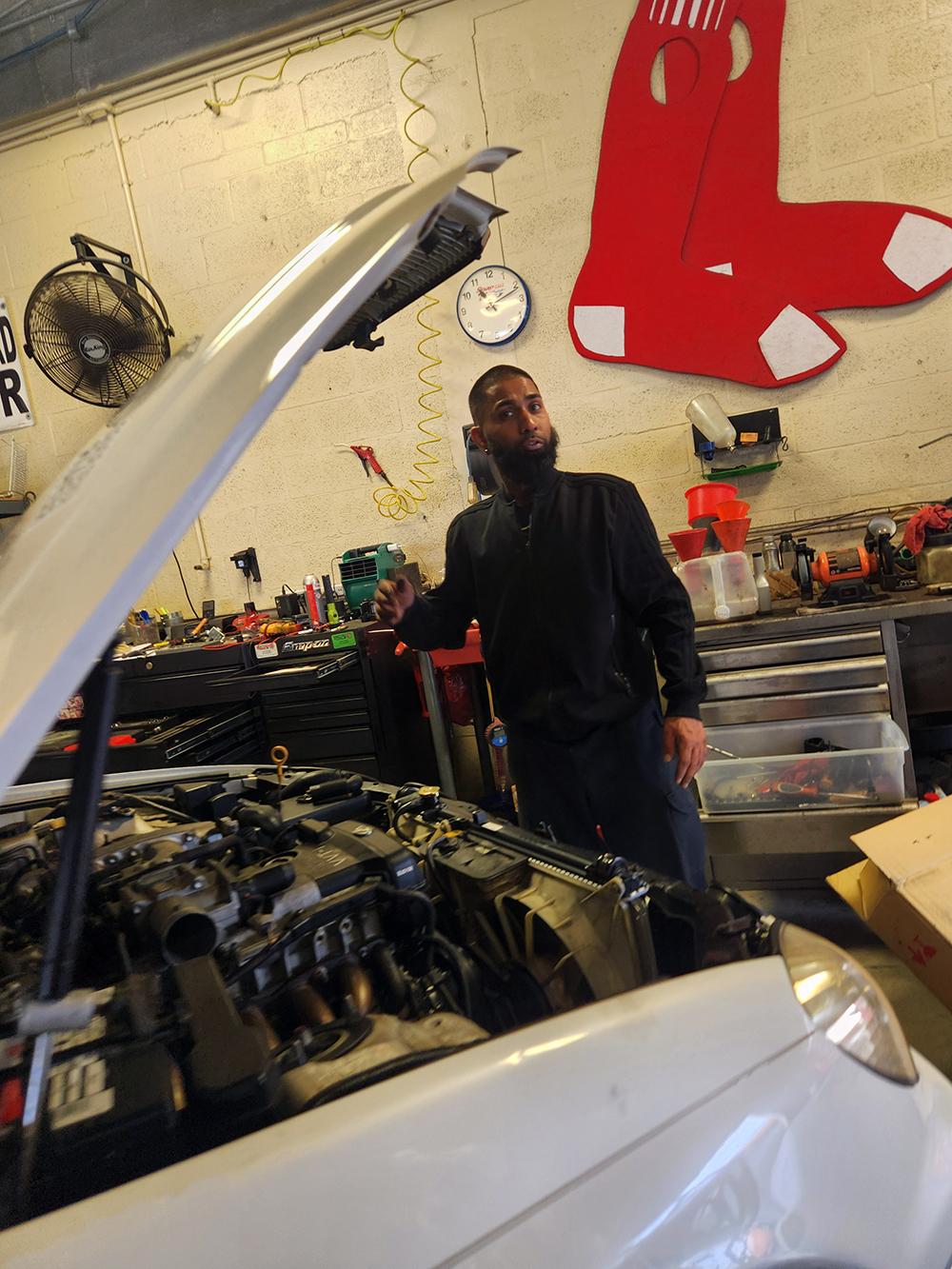All Categories
Featured
Your automobile's engine is a complicated system that depends on lots of interconnected parts to operate effectively. One of the most essential elements that makes certain everything runs smoothly is the timing belt. Though typically overlooked, the timing belt plays an important role in maintaining your engine integrated and operating at peak performance. Overlooking its upkeep or substitute can cause significant, expensive damage to your engine. In this write-up, we'll explore the value of timing belt replacement and why it's important to your engine's longevity.
What Is a Timing Belt and Just How Does It Function? The timing belt is a rubber or strengthened composite belt that connects the crankshaft to the camshaft in your engine. These two parts must operate in sync for the engine's valves to open up and shut at the correct times throughout the burning cycle. The timing belt regulates this synchronization, making certain that the pistons and shutoffs don't collide.
![]()
As your engine runs, the timing belt continuously relocates to maintain these elements lined up. Over time, the belt undertakes wear and tear from heat, engine, and rubbing resonances. If it breaks or ends up being loose, the crankshaft and camshaft will certainly no more be integrated, causing engine misfires, loss of power, or, in the most awful case, severe engine damages.
Why Timing Belt Replacement Is Essential. Stops Serious Engine Damages: If the timing belt breaks while the engine is running, the pistons can ram the shutoffs, causing bent shutoffs, damaged pistons, and even a fractured engine block. This type of damage commonly calls for costly and substantial repair work or a whole engine substitute. Replacing the timing belt prior to it falls short is a cost-effective and straightforward way to stay clear of such catastrophic consequences.
![]()
Guarantees Smooth Engine Procedure: A properly maintained timing belt assists keep your engine running smoothly by preserving the correct synchronization between the crankshaft and camshaft. When the timing belt is broken or extended, the timing of the engine's valves might be off, triggering engine misfires, rough idling, or delaying. Changing the timing belt at the recommended period guarantees that the engine operates as it was designed to, optimizing performance and effectiveness.
Conserves You Money: Although changing the timing belt might seem like a significant upfront cost, it's much more cost effective than the price of fixing or changing a harmed engine. The labor involved in changing the timing belt is a lot less expensive than repairing engine elements that are harmed due to a busted belt. Regular timing belt replacement can conserve you hundreds of bucks in the future by preventing engine failure and costly fixings.
Stops Unexpected Breakdowns: If your timing belt breaks unexpectedly while you're driving, it can leave you stranded and call for pricey towing. In the worst instances, it can trigger a total engine failure that provides your auto unusable. By changing the timing belt according to the maker's guidelines, you minimize the threat of sudden break downs and ensure your vehicle remains dependable throughout daily driving and long trips.
When Should You Replace Your Timing Belt? The timing belt does not last for life, and its substitute timeline can differ depending upon the make and model of your automobile. Many suppliers recommend changing the timing belt every 60,000 to 100,000 miles. However, it is necessary to consult your lorry's owner's guidebook for specific standards, as some engines might require earlier or later replacements.
If you're uncertain about the problem of your timing belt, indicators that it may require replacing include unusual engine noise (such as ticking or slapping noises), difficulty beginning the engine, or inadequate engine efficiency. If required., a specialist technician can examine the timing belt for wear and tear and change it.
Verdict. The timing belt is a vital part of your vehicle's engine, and its appropriate maintenance can save you from pricey repair work and engine damages. Routinely changing the timing belt at the supplier's suggested periods helps guarantee smooth engine operation, stays clear of unanticipated breakdowns, and inevitably prolongs the life of your engine. Do not ignore this critical upkeep job-- by remaining on top of timing belt replacement, you're purchasing the long-lasting health of your lorry.
What Is a Timing Belt and Just How Does It Function? The timing belt is a rubber or strengthened composite belt that connects the crankshaft to the camshaft in your engine. These two parts must operate in sync for the engine's valves to open up and shut at the correct times throughout the burning cycle. The timing belt regulates this synchronization, making certain that the pistons and shutoffs don't collide.

As your engine runs, the timing belt continuously relocates to maintain these elements lined up. Over time, the belt undertakes wear and tear from heat, engine, and rubbing resonances. If it breaks or ends up being loose, the crankshaft and camshaft will certainly no more be integrated, causing engine misfires, loss of power, or, in the most awful case, severe engine damages.
Why Timing Belt Replacement Is Essential. Stops Serious Engine Damages: If the timing belt breaks while the engine is running, the pistons can ram the shutoffs, causing bent shutoffs, damaged pistons, and even a fractured engine block. This type of damage commonly calls for costly and substantial repair work or a whole engine substitute. Replacing the timing belt prior to it falls short is a cost-effective and straightforward way to stay clear of such catastrophic consequences.

Guarantees Smooth Engine Procedure: A properly maintained timing belt assists keep your engine running smoothly by preserving the correct synchronization between the crankshaft and camshaft. When the timing belt is broken or extended, the timing of the engine's valves might be off, triggering engine misfires, rough idling, or delaying. Changing the timing belt at the recommended period guarantees that the engine operates as it was designed to, optimizing performance and effectiveness.
Conserves You Money: Although changing the timing belt might seem like a significant upfront cost, it's much more cost effective than the price of fixing or changing a harmed engine. The labor involved in changing the timing belt is a lot less expensive than repairing engine elements that are harmed due to a busted belt. Regular timing belt replacement can conserve you hundreds of bucks in the future by preventing engine failure and costly fixings.
Stops Unexpected Breakdowns: If your timing belt breaks unexpectedly while you're driving, it can leave you stranded and call for pricey towing. In the worst instances, it can trigger a total engine failure that provides your auto unusable. By changing the timing belt according to the maker's guidelines, you minimize the threat of sudden break downs and ensure your vehicle remains dependable throughout daily driving and long trips.
When Should You Replace Your Timing Belt? The timing belt does not last for life, and its substitute timeline can differ depending upon the make and model of your automobile. Many suppliers recommend changing the timing belt every 60,000 to 100,000 miles. However, it is necessary to consult your lorry's owner's guidebook for specific standards, as some engines might require earlier or later replacements.
If you're uncertain about the problem of your timing belt, indicators that it may require replacing include unusual engine noise (such as ticking or slapping noises), difficulty beginning the engine, or inadequate engine efficiency. If required., a specialist technician can examine the timing belt for wear and tear and change it.
Verdict. The timing belt is a vital part of your vehicle's engine, and its appropriate maintenance can save you from pricey repair work and engine damages. Routinely changing the timing belt at the supplier's suggested periods helps guarantee smooth engine operation, stays clear of unanticipated breakdowns, and inevitably prolongs the life of your engine. Do not ignore this critical upkeep job-- by remaining on top of timing belt replacement, you're purchasing the long-lasting health of your lorry.
Latest Posts
Discover Top Dodge Models at Sherman Dodge
Published Jan 19, 25
2 min read
Experience Excellence in Dodge Services
Published Jan 19, 25
2 min read
Luxury Bathroom Upgrades for Less
Published Jan 19, 25
0 min read